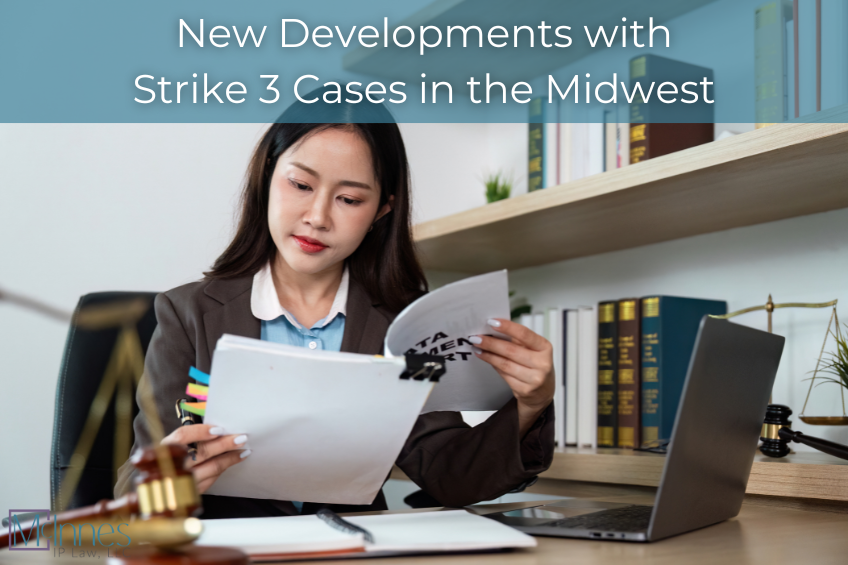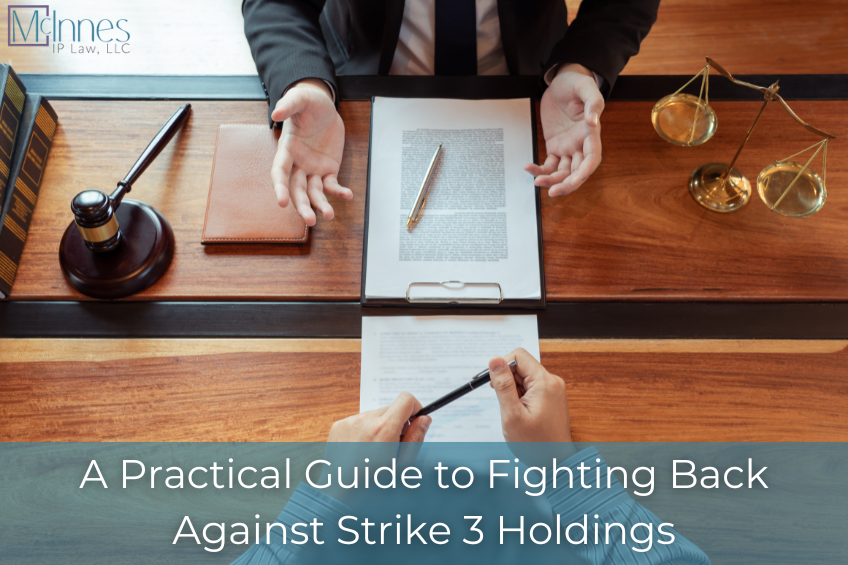Strike 3 Holdings, LLC has once again begun filing new copyright‐infringement lawsuits (“John Doe” filings) in Ohio. We have also seen an uptick in cases filed in Illinois. The Midwest may be Strike 3’s preferred jurisdiction of late, even though we continue to see cases filed in California, Texas, New York, Massachusetts, Georgia, and Florida. Regardless of jurisdiction, these cases are part of the ongoing strategy by Strike 3 Holdings to pursue alleged illegal file sharing of its adult content.
One thing to note is that Ohio has not been a hotbed for Strike 3 in 2025, but that seems to be changing. Since the beginning of September, the Midwest (specifically Ohio and Illinois) seems to be in the crosshairs of Strike 3 Holdings. Here’s a breakdown of what’s new, what this means, and what you should keep in mind.
What We’ll Cover:
- What’s new with Strike 3 cases?
- What these legal developments mean
- Key legal and practical issues to watch
- What to do if you are affected by Strike 3 Holdings
- Key takeaways
- Legal representation
What’s New with Strike 3 Cases?
1) Midwest Filings
We are seeing new “John Doe” filings in Ohio, which we have not previously seen in recent months. Are we seeing a flashback to October of 2023, when 66 new cases were filed in Ohio? Only time will tell.
Illinois filings are nothing new, but since June of 2025, we have continued to see an increase in filings by Strike 3.
2) John Doe Phase
All of these new suits name the defendant as “John Doe” initially, as seen in the other Strike 3 cases in other states. This action means the plaintiff is using IP addresses tied to alleged infringing downloads, but has not yet identified the human user.
The filings include a “Works List” (i.e, the specific pieces of copyrighted content allegedly infringed) and a “Report on the Filing of an Action Regarding a Copyright” (AO 121).
3) Procedural Details
These cases demand a jury. They’re being filed in federal court under 17 U.S.C. § 101, which governs copyright law.
4) Pattern and Frequency
These filings aren’t happening in isolation. Strike 3 has been active in Ohio (and other states) for some time, but not in recent months. However, they are filing “John Doe” cases and then issuing subpoenas to the ISPs to obtain personal identifying information.
Settlement demands from Strike 3 (when they occur) tend to scale with the number of titles allegedly downloaded. Despite this, the earlier in the process you engage, the lower the demand from Strike 3.
What These Legal Developments Mean
For those who might receive notices or be named:
You may get a notice from your Internet Service Provider (ISP) that Strike 3 is requesting your identifying information via subpoena. Your name, account data, etc., may follow unless you respond.
Initially, you’re still anonymous (“John Doe”) until your ISP discloses your identity.
Once you are named and served, the stakes (financially, reputationally) tend to go up.
For defenders or people concerned about being targeted:
The timing of responses, hiring a qualified copyright‐defense attorney, and evaluating all legal options (settlement, motion to quash subpoena, fighting in court) are all important.
Settlements vary widely. Per‐title demands can run from around one hundred dollars to a few hundred dollars per title, but many factors play into the final settlement amount.
For courts and legal observers:
These cases illustrate the use of Doe defendants in copyright litigation, especially in infringement cases involving digital content and internet communications.
They also underscore the tension around discovery, privacy, due process, and fairness—especially when defendants may have no way of knowing if they actually committed the infringement (or whether someone else in their household did).
Do You Need Legal Representation Against Strike 3 Holdings?
Key Legal and Practical Issues to Watch
1) Motions to Quash
Some defendants challenge the subpoenas (or the requirement that ISPs produce identifying information) via a motion to quash. However, whether that succeeds depends heavily on the local court, how solid the IP tracking is, whether the chain‐of‐custody and evidence are sufficient, etc.
2) Anonymity & Public Exposure
Courts sometimes allow the real name of a defendant to be kept confidential (sealed) even after a Complaint is amended. Other times, name disclosure is public. These decisions can affect whether someone feels pressured to settle to avoid public exposure.
3) Settlement vs. Defense
Settling may resolve the issue more quickly, quietly, and can save money as opposed to lengthy litigation (in some cases), but depending on the merits of the case (did the downloading happen? who did it? is the evidence strong?), defending in court might lead to dismissals if one can bear the cost of litigation.
4) Cost vs. Risk
The cost of a legal defense, time, emotional stress & potential reputational harm can outweigh the cost of settlement—even if one believes they did nothing wrong.
Also, court deadlines are important: missing a deadline can lead to default judgments.
What to Do If You Strike 3 Holdings Targets You
If you are in Ohio or Illinois (or anywhere in the United States) and believe you may be a target of one of these cases or have received a notice, here are steps you should consider:
- Read all documents carefully — notice, works list, subpoena from ISP, and any summons. Understand what exactly the allegations say.
- Do not ignore deadlines — at some point, you may have to respond, move to quash, or appear. Default judgments can have serious consequences.
- Get legal advice — especially from someone familiar with copyright law and “John Doe”/ISP subpoena cases. We are experts in Strike 3 cases, and we can help you resolve this matter.
Key Takeaways
-
Strike 3 is increasing activity in the Midwest, with new “John Doe” copyright filings in Ohio and a continued rise in Illinois cases.
-
Ohio, which had been relatively quiet in 2025, now appears to be back in focus—potentially signaling a broader regional strategy shift.
-
The core tactic remains the same: file a federal lawsuit against an IP address, then subpoena the ISP to identify the account holder.
-
An ISP notice means you are still anonymous—for now—but legal filings may disclose your identity if you do not respond in time.
-
Once you are publicly named and served, financial, reputational, and legal risks typically increase significantly.
-
Settlement demands often scale with the number of alleged downloads, but early engagement can improve leverage.
-
Motions to quash, anonymity requests, and negotiated settlements are possible tools—but outcomes depend heavily on jurisdiction and case facts.
-
Missing deadlines can lead to default judgments and serious consequences.
Get Help Responding to a Strike 3 Holdings Subpoena
As these cases continue, one particularly important thing to keep in mind is that proper legal representation is key. Do your research and hire an expert who will fight for you! McInnes IP Law is an expert in these cases. We will fight for you, answer your calls and emails, and give you the representation you deserve.
McInnes IP Law has represented clients across the United States in Strike 3 Holdings matters. We focus on minimizing exposure, reducing costs, and protecting your name. If you need Strike 3 attorneys because of an ISP notice, call us at (774) 234-1256, email us at info@mcinnesiplaw.com, or message us on our LinkedIn Company Page.
Disclaimer: This post is for informational purposes only and does not constitute legal advice. Reading it does not create an attorney–client relationship. Every matter is fact-specific; consult counsel about your specific situation and jurisdiction.



